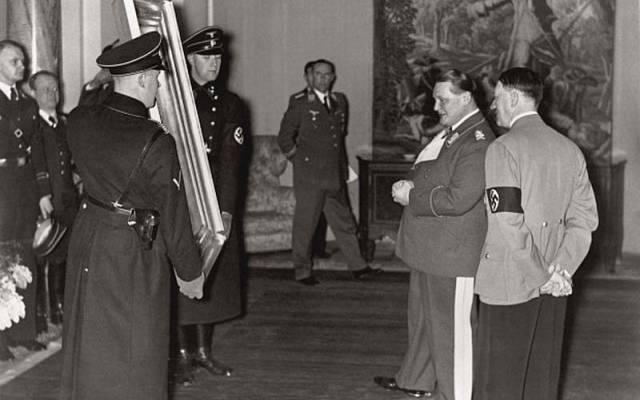A judge has ruled in favor of a Southern California museum in its 10-year legal battle over the ownership of two German Renaissance masterpieces that were seized by the Nazis in World War II.
US District Court Judge John F. Walter ruled last week that Pasadena’s Norton Simon Museum, where the paintings “Adam” and “Eve” have been for more than 30 years, is the rightful owner of the two life-size oil-on-panel paintings.
The museum called the decision mindful of “the facts and law at the heart of the dispute,” the Los Angeles Times reported Monday.
Marei von Saher alleged that the paintings were seized from her father-in-law, Dutch Jewish art dealer Jacques Goudstikker, after his family fled Holland during the Holocaust.
The Norton Simon countered that it legally acquired the works in the 1970s from the descendant of Russian aristocrats who had them wrongly taken by the Soviet Union in the 1920s.
Lucas Cranach the Elder painted the works in around 1530. In 1971, they were acquired by the museum for $800,000, the equivalent of about $4.8 million today. They were appraised at $24 million in 2006.
Depicting mankind in the ominous moment before the biblical Fall, the painting’s ownership battle, too, points to a period in human history fraught with uncertainty: a 20th-century Europe ravaged by war.
Ongoing Battle To Reclaim Stolen Property
The dispute is one of many to emerge in recent years involving precious art looted by the Nazis.
The judge said that because Goudstikker’s art dealership decided not to seek restitution for the works after the war, his family thereby abandoned their claim to the art.
“Obviously, Ms. von Saher is disappointed with the court’s decision,” representatives from her legal firm, who plan to appeal the decision, said in a statement to the Times.
They also criticized a legal motion exchanged with them by the museum’s legal team, presenting evidence that von Saher’s father was a member of the Nazi Party.
“Using this information in an attempt to discredit Ms. von Saher is nothing more than a distasteful device to evade responsibility for refusing to restitute artworks that were indisputably stolen from her husband’s family,” the attorneys said.
The Nazis organized looting of European countries during the time of the Third Reich. Nazi plundering occurred from 1933 until the end of World War II, particularly by military units known as the Kunstschutz.
In addition to gold, silver and currency, cultural items of great significance were stolen, including paintings, ceramics, books, and religious treasures.
There is an international effort underway to identify Nazi loot that still remains unaccounted for, with the aim of ultimately returning the items to the rightful owners, their families or their respective countries.
Many Jewish families have fought, or are fighting, to reclaim ownership over family heirlooms, which are currently held by museums and other institutions around the world.
By: AP and United with Israel Staff
